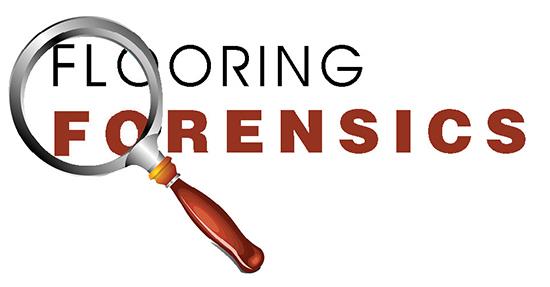Flooring Forensics: Mainstreet is a unique market niche – Jan 2022
By Lew Migliore
The mainstreet market traditionally consists of the small businesses around a community, often housed in strip malls or downtowns-doctors, dentists, insurance agencies, restaurants, healthcare offices, hair and nail salons, attorneys’ offices. In contrast to chain operations that are franchised or owned by a large company, mainstreet comprises any locally owned businesses that provide a service or product to that locale. And there are millions of them, making them a huge market for flooring.
All of these small businesses have flooring, and therefore need flooring from time to time. They could use the same commercial flooring products as those used in large corporate locations; however, there are dedicated products for the mainstreet market, provided by most of the large domestic flooring manufacturers.
Mainstreet businesses are more likely to shop locally for flooring at an independent flooring retailer as opposed to using, or even knowing about, a commercial flooring contractor in their area. They are also not likely to use an architect but may use an interior designer for their interior furnishings and flooring. They’re probably rather clueless about the products available or what would be a good fit for their business. Also, a small business is less apt to have a large budget for new flooring. To capture this business, flooring retailers must be up-to-speed and serve as an adviser on the flooring products and needs of this market.
Most of the large flooring producers have a dedicated offering for the mainstreet commercial market, especially makers of carpet tile, which has a bigger share of the market than broadloom. However, what’s being used primarily is LVT. Many of these products can be glued down, but increasingly, they are clicked together and left “floating” on top of the subfloor. These floating floors are susceptible to heavy and rolling traffic that can break the tongue on the end or edge, leading to a flooring failure. So, if the business is going to receive heavy traffic, it would be prudent to glue the floor to the substrate and steer clear of floating floors, regardless of how they’re made and marketed.
The installation guidelines and practices for installing flooring in the mainstreet market are exactly the same as for the specified commercial market. The substrate must be clean, dry and free of any compromising contaminants or conditions that could cause an installation failure. Moisture testing should be done, and if moisture is an issue, the substrate must be mitigated to prevent a moisture-related flooring failure. This means that the retailer selling into this market must be keenly aware of any condition that could compromise the flooring or the installation and take measures to prevent it. The small-business end user will certainly not be savvy about these conditions and may be skeptical and reluctant to accept all the prep work that may be required on the substrate prior to the actual installation of the flooring. But they have to be enlightened about the consequences of what may happen to their new flooring investment if they don’t correct the conditions that could cause a failure.
Manufacturers like to emphasize the warranty on their products, but most important is selling the right product, properly suited for the application, into the right space. You shouldn’t have to “crutch sell” the flooring with warranties, most of which are useless anyway and don’t cover what actually occurs in a flooring failure.
Products that are most appealing in the mainstreet market are, as mentioned, carpet tile and LVT, both in plank and tile formats, with plank being the leader. But don’t forget the other hard surface flooring materials that can make a space pop-as long as the flooring will perform there. Porcelain tile and hardwood can improve the look and character of a space, especially in the professional offices of attorneys, financial consultants, insurance brokers, counselors, doctors or unique boutique retailers. The higher the profile of the business, the more of an impact the flooring should make. Flooring dealers should be selling flooring products that fit the business’ image and make a statement. The flooring should not only be functional, but it should also exude the image a higher-end business is projecting.
Copyright 2022 Floor Focus
